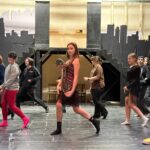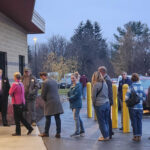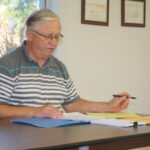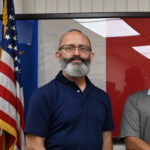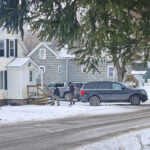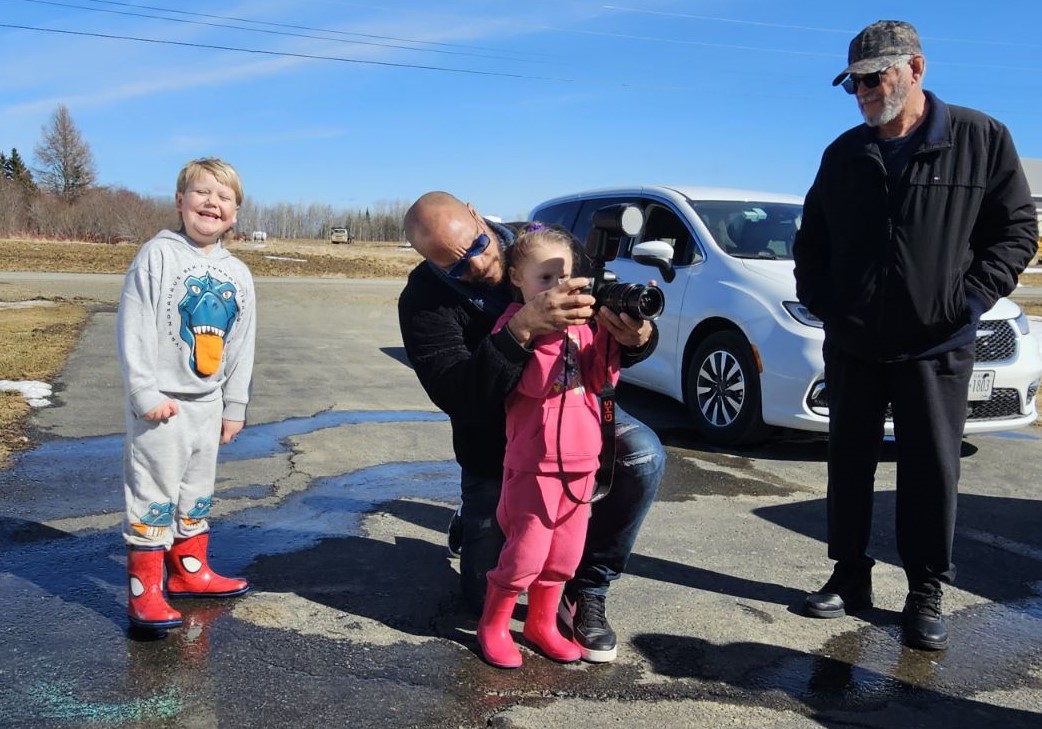
MONTICELLO, Maine – It was a Sunday afternoon in early March when two men knocked on Brian and April Morrison’s door in this small Aroostook County town.
The men told Brian Morrison they were eclipse chasers from South Portland. Morrison was a little hesitant because it’s rare for people to show up on his doorstep. But he continued to listen.
“Really one of the turning points for me was when [one of the men] said,’I’ve got my daughter out in the car,’” Morrison said. “Most people who are going to try anything funny are not going to bring their kids with them.”
Pedro Vázquez and Genius Black were part of the Citizen Continental America Telescopic Eclipse 2024 experiment, funded by the National Science Foundation and NASA. They had been searching for a location near the NASA assigned GPS coordinates to set up equipment and practice for the total solar eclipse on April 8.
The thing is, the coordinates were on private land and the first landowner they encountered was not thrilled they were there, Vázquez said.
“We just drove around 800 to 900 feet and saw the Morrison home and it looked inviting and safe, safe enough to go knock on the door,” he said.
Little did Morrison or the South Portland NASA team realize the trust they extended to each other on that Sunday afternoon in March was the beginning of a family-like friendship that continues to grow.
About a week before the eclipse, Brian Morrison reached out to Genius Black to confirm they were still planning on coming to their Monticello home for the eclipse.
Genius Black threw out the idea of grilling some burgers together and the Morrisons said it sounded like fun. So the grill got dragged out, tables and chairs were set, coffee and donuts were ready for morning and their South Portland visitors dropped off burgers, dogs and rolls.
“The weather cooperated perfectly and it was like having the family over for a big barbeque and we happened to watch an eclipse during it,” Brian Morrison said.
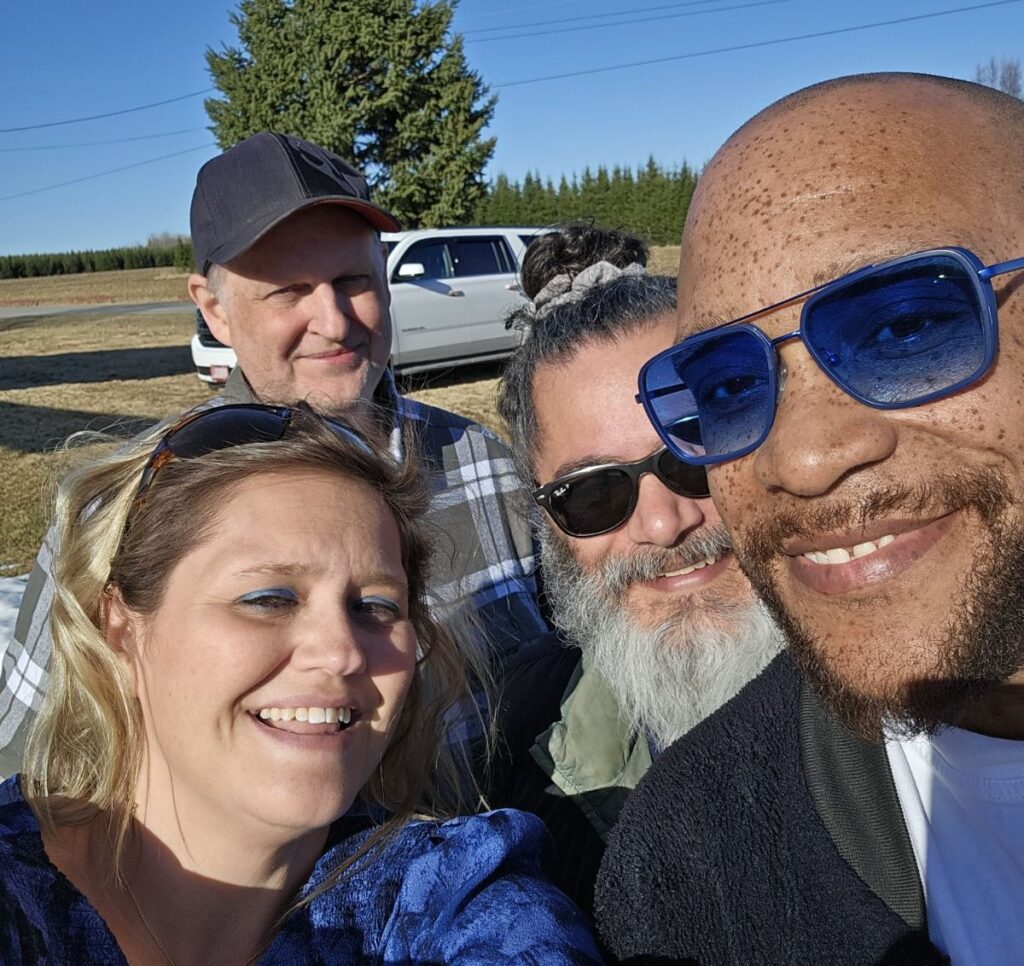
Their eclipse journey north began last year when Vázquez, a space shuttle photographer with credentials for NASA’s Kennedy Space Center and Space Force Base at Cape Canaveral, applied to be part of the citizen CATE 2024 experiment, linking 40 teams of citizen scientists from Texas to Maine.
Vázquez and Genius Black were selected for the Houlton team and after extensive training, they had to practice many times before the actual eclipse. The March visit to the County was their first on-location practice session at the Morrison’s home.
Before they left that day, April Morrison invited them to come back.
“They are just such really nice guys. We extended the offer, we have everything they need, power, a clear view of the sky,” Brian Morrison said. “ And that was the genesis of how it started.”
The Morrisons are both Mainers. April is a Houlton native and Brian grew up in Washington County. He moved to Aroostook County in 2000 and to Monticello in 2018, he said.
Vázquez, a South Portland community organizer, space flight photographer and STEM educator, brought his parents Luz and Pedro Vázquez who live in Florida, his wife Lindsey and three of their six children for the experience at the Morrison’s.
Genius Black, a music producer and photographer, also known as Jerry Edwards, hosts the Maine Monitor sponsored “Maine’s Black Future” podcast and was recently granted a Maine Arts Commission fellowship for 2024.
South Portland friend John Fairweather, a telescope expert, also joined them for the eclipse experience in Monticello.
While Vázquez travels throughout Maine for his work and was recently in Limestone as part of the Blue Shift rocket launch, this was the farthest north Genius Black has ever ventured.
“I knew nothing about those points on earth. I’ve never been to Canada,” Genius Black said. “We were hanging out on their porch and they said, ‘see those trees over there, that’s Canada.’ They will never really know how much this all meant to me.”
In the time leading up to totality, Genius Black helped the Morrisons’ children see the images from the telescope and showed them how to use the camera.
“It was really cool seeing him lift my daughter Evelyn up on his shoulders so she could operate the camera and take pictures,” Brian Morrison said.
And they all got to witness aspects of the sun not visible with the naked eye. Basically, they could watch the eclipse with the telescope images on the computer screen. They could see solar flares and sunspots, he said.
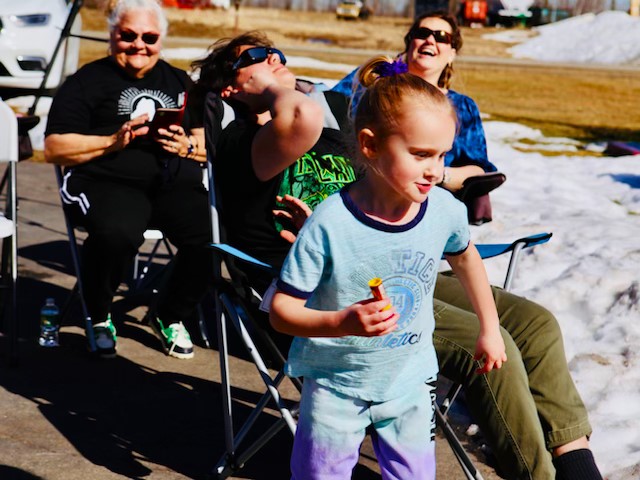
Throughout the day, this blended group of new friends laughed, ate hot dogs and burgers alongside the serious science of studying this celestial occurrence.
After they said their good-byes, Luz Vázquez or Abuela as everyone called her, texted April Morrison.
“I will never forget this beautiful and wonderful experience. South met North in the best of circumstances,” she wrote. “It doesn’t get better than that.”
Not to mention, she told April she is taking her to the 2026 total solar eclipse in Iceland.
For many of us it was a pivotal moment and none of us will ever forget it, April Morrison said.
As part of the agreement with NASA, Vázquez and Genius Black can keep the telescope and equipment as long as it is available to the community in some way.
“Part of my aim is to share this with the next generation and to ignite curiosity in youth, specifically ones that may not have access to thousands of dollars worth of telescopes and equipment,” Vázquez said.
The two men are talking about creating a space where people who come from marginalized or disadvantaged backgrounds have the opportunity to learn how to use it.
“I’m on cloud nine for the whole thing. I can’t think of a way it could have gone better under that celestial phenomenon,” Vázquez said. “It was really a special moment and I am holding on to that and thinking about it as the days go on.”
This story was updated to correct Kaleb York’s name in the photo caption.

